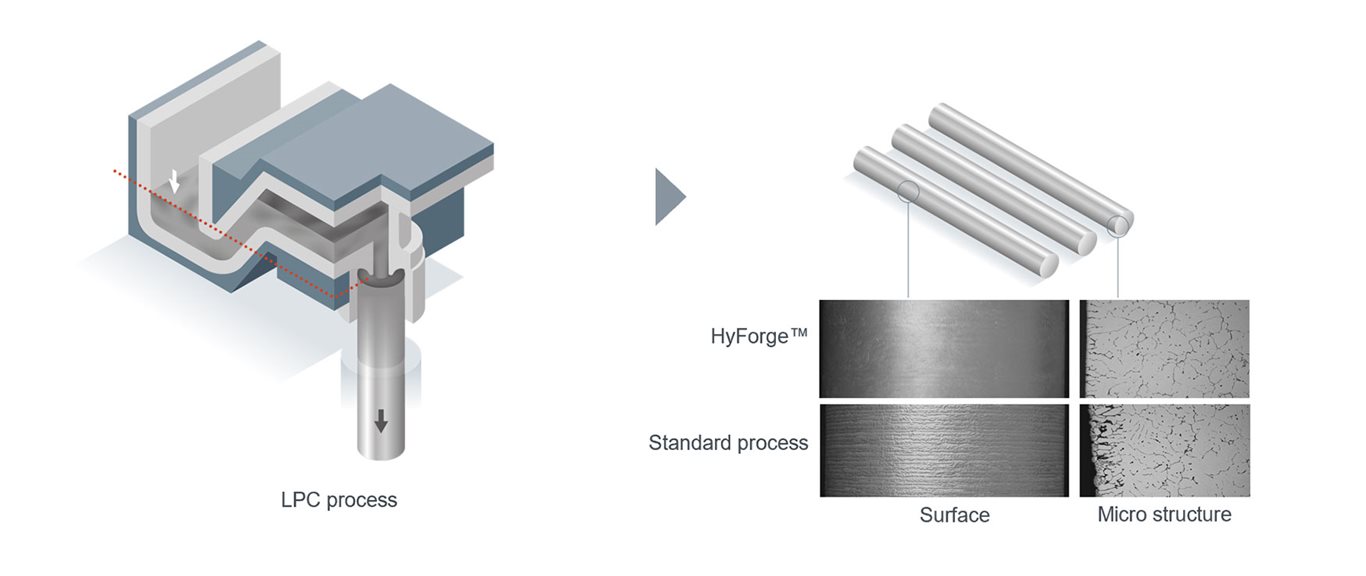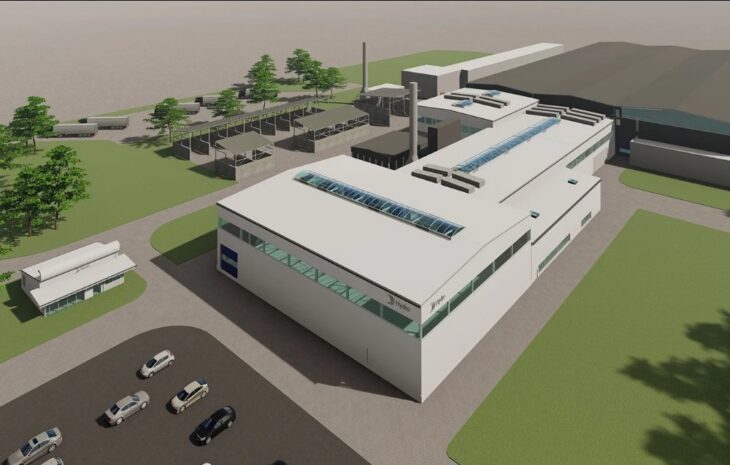Hydro is investing EUR 40 million to expand its Rackwitz recycling plant near Leipzig, Germany, to enable the production of HyForge™ forging stock. The expansion will significantly increase the use of post-consumer aluminum scrap and will serve automotive customers with smaller-diameter, high-quality billets that may be forged directly into high-quality automotive components.
“After successfully introducing [HyForge] at the Hydro Husnes primary plant, we are now taking this break-through step at Rackwitz for even smaller diameter billets,” said Trond Olaf Christophersen, Head of Recycling in Hydro Aluminium Metal. In addition, the project will also support Hydro in reaching its target of doubling its use of post-consumer aluminum by 2025.
The Rackwitz recycling plant is specialized in serving automotive customers and is qualified to deliver products for safety components. The plant currently produces around 95,000 tonnes of extrusion ingots per year. With the expansion, Rackwitz plans to produce an additional 25,000–30,000 tonnes of HyForge forging stock in addition to increasing the amount of post-consumer scrap recycled at the site.
“We are already a preferred supplier in the automotive market and that position will only get stronger with the introduction of HyForge,” says Rackwitz Plant Manager Thomas Stuerzebecher. “Through the high share of post-consumer scrap in HyForge to be delivered by Rackwitz, we are able to provide these products as Hydro REDUXA with a guaranteed carbon-footprint of below 4 kg CO2 per kilo aluminum — which is less than 25% of the global average for primary metal.”
High Quality Aluminum Forging Stock
More car manufacturers using closed die forging to make precision components, such as wheel suspensions. Forging stock generally has a smaller diameter than traditional aluminum billet, and requires a superior surface quality. Because of this, producing forging stock is generally a multi-step process, which involves casting the aluminum billet and then scalping the billet to remove inverse segregation zone.
With its new low pressure casting (LPC) technology, Hydro can produce high-quality forging stock in a single step. The LPC technology reduces the friction that normally occurs during traditional DC casting, thus eliminating the inverse segregation zone and resulting in a very smooth billet surface. As a result, there is no need for further process steps like scalping, extrusion, homogenization, or machining.

The forging stock produced using the LPC technology is known as HyForge. The material can be produced in all commonly available 6xxx alloys, as well as other alloys upon request. The forging stock (available in round billet of 80-130 mm diameter and in lengths up to 7 m) features a surface roughness of <15 µm. Therefore, after casting, it can be delivered directly to the forging operation and manufactured into high-quality automotive components.
“The Rackwitz plant and the HyForge product tick all the right boxes when it comes to the automotive industry’s high-quality standards and rapidly increasing focus on sustainability,” said Christophersen. “This investment is a perfect fit to Hydro’s overall ambition to lift profitability and drive sustainability, and our ambitious growth targets within the fast-developing area of recycling.”
The new facility is planned to become operational by end of first quarter 2023.

